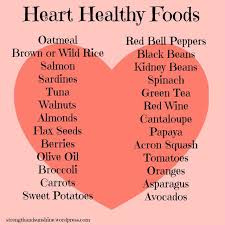
Recently Diagnosed or Relapsed? Stop Looking For a Miracle Cure, and Use Evidence-Based Therapies To Enhance Your Treatment and Prolong Your Remission
Multiple Myeloma an incurable disease, but I have spent the last 25 years in remission using a blend of conventional oncology and evidence-based nutrition, supplementation, and lifestyle therapies from peer-reviewed studies that your oncologist probably hasn't told you about.
Click the orange button to the right to learn more about what you can start doing today.
- You are here:
- Home »
- Blog »
- Multiple Myeloma »
- Cardiac Rehab-Yoga, Elliptical, Diet, Weights as Therapy
Cardiac Rehab-Yoga, Elliptical, Diet, Weights as Therapy

“We performed a meta-analysis to examine the effects of yoga on exercise capacity and health-related quality of life (HRQOL) in patients with CHF…”
In late 2010, after more than 15 years, I developed a late stage side effect called chemotherapy-induced cardiomyopathy (CIC) as well as chronic Afib. After a diagnosis of multiple myeloma (MM) in early 1994, I underwent a number of chemotherapy regimens that are cardio toxic aka can damage your heart.
I do not consider myself any sort of heart health expert. I’m a long-term MM survivor who has had to manage his health. But I noticed that my cardiologist never talked about non-toxic therapies to manage my CIC.
So I did some research on the subject of non-toxic heart rehab therapies.
As the studies linked and excerpted below document, the effects of yoga, moderate cardio, healthy nutrition,moderate weight lifting, and nutritional supplementation all help me manage my CIC.
Long story short, since my diagnosis of CIC in 2010, I have managed to increase my ejection fraction by 20%- without taking any drugs. None.
Let me know if you have any questions.
Thanks,
David Emerson
- Cancer Survivor
- Cancer Coach
- Director PeopleBeatingCancer
Recommended Reading:
- Exercise w/ Atrial Fibrillation-Good or Bad?
- Got Heart Failure? Get Brain Training, Exercise, Supplements, Diet
- Sauna Therapy for my Congestive Heart Failure
- L-Carnitine Effective for Chronic Heart Failure
Effects of Yoga in Patients with Chronic Heart Failure: A Meta-Analysis
“The use of yoga as an effective cardiac rehabilitation in patients with chronic heart failure (CHF) remains controversial…
We performed a meta-analysis to examine the effects of yoga on exercise capacity and health-related quality of life (HRQOL) in patients with CHF.
Methods: We searched MEDLINE, Cochrane Central Register of Controlled Trials, Excerpta Medica database, LILACS, Physiotherapy Evidence Database, The Scientific Electronic Library Online, and Cumulative Index to Nursing and Allied Health (from the earliest date available to December 2013) for randomized controlled trials (RCTs) examining the effects of yoga versus exercise and/or of yoga versus control on exercise capacity (peakVO2) and quality-of-life (HRQOL) in CHF…
In this study, yoga is shown to be effective in the rehabilitation of patients with CHF. Considering peak VO2, it is well known that improvements above 10% after a cardiovascular rehabilitation program are satisfactory and represents a good prognosis in patients with CHF24.
The assessment of the HRQOL is an essential outcome in the rehabilitation process. It is recognized that HRQOL is also associated with mental and physical status. Yoga is reported to improve important mental endpoints, such as anxiety and depression. In addition, yoga has been found to be critical for the enhancement of patients’ exercise capacity…
Considering the available data, our meta-analysis showed that yoga improved peak VO2 and HRQOL in patients with CHF. Yoga should be considered as an alternative method of exercise training in patients with CHF.”
6 Benefits of Elliptical Machines
“Ellipticals are widely used both in homes and in health clubs. Ellipticals offer the benefit of a low-impact workout while exercising both your upper and lower body.
Elliptical trainers are particularly appealing to the aging baby boomer generation. Not only are they forgiving to aging joints, but they also give you a good aerobic workout, helping you burn calories for weight loss. If you’ve never used one of these machines there are a few good reasons to give it a try…”
Ways to Follow the Mediterranean Diet for Better Health
“Perhaps the world’s healthiest diet, the Mediterranean diet is abundant in fruits, vegetables, whole grains, legumes and olive oil. It features fish and poultry-lean sources of protein-over red meat. Red wine is consumed regularly but in moderate amounts…”
Weightlifting is good for your heart and it doesn’t take much
“Lifting weights for less than an hour a week may reduce your risk for a heart attack or stroke by 40 to 70 percent, according to a new study. Spending more than an hour in the weight room did not yield any additional benefit, the researchers found. The results show benefits of strength training are independent of running, walking or other aerobic activity…”
Supplements for Heart Health
“Fiber. Found naturally in fruits, grains, vegetables, and legumes, fiber cuts down the amount of cholesterol your body soaks up from food. Try to get at least 25 to 30 grams of it every day. Men less than age 51 should aim for 38 grams a day. It’s best to get your daily dose from your diet, but supplements are another option…
Other Supplements That May Offer Benefits
Coenzyme Q10 (CoQ10). Your body naturally makes small amounts of this enzyme, also known as ubiquinone and ubiquinol. As a supplement, CoQ10 may help lower blood pressure, either on its own or along with medications. ..
Green tea. Research shows that both the extract and the drink may lower LDL cholesterol and triglycerides, and raise HDL levels.
Flaxseed oil.Flaxseed and flaxseed oil may lower cholesterol levels. It’s not clear whether it also lowers your overall risk of heart disease.
Folic acid. Folic acid, a B vitamin, lowers levels of the amino acid homocysteine, which has been linked to heart disease. But studies have not proved that folic acid reduces the rate of repeat heart attacks and stroke…
Magnesium. Magnesium helps keep blood pressure normal and is sometimes used to help correct abnormal heart rhythms…


